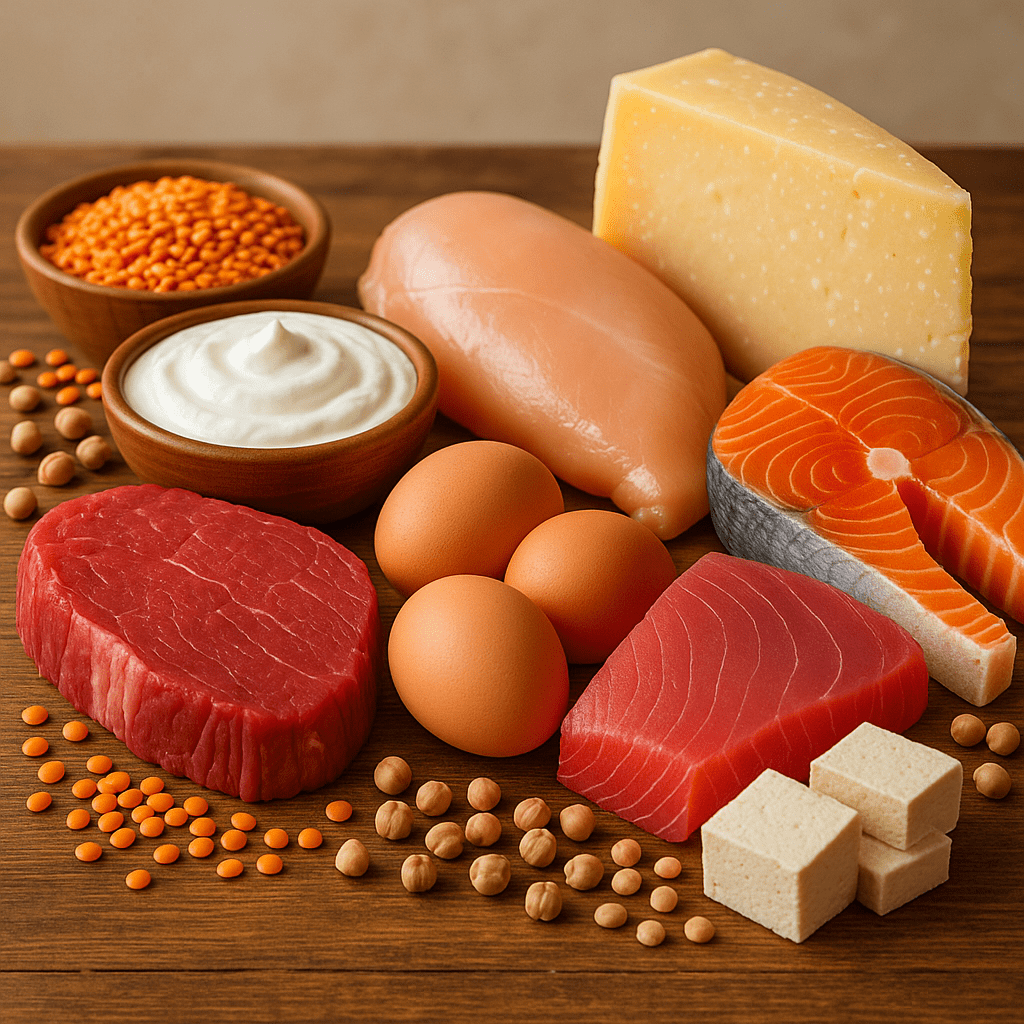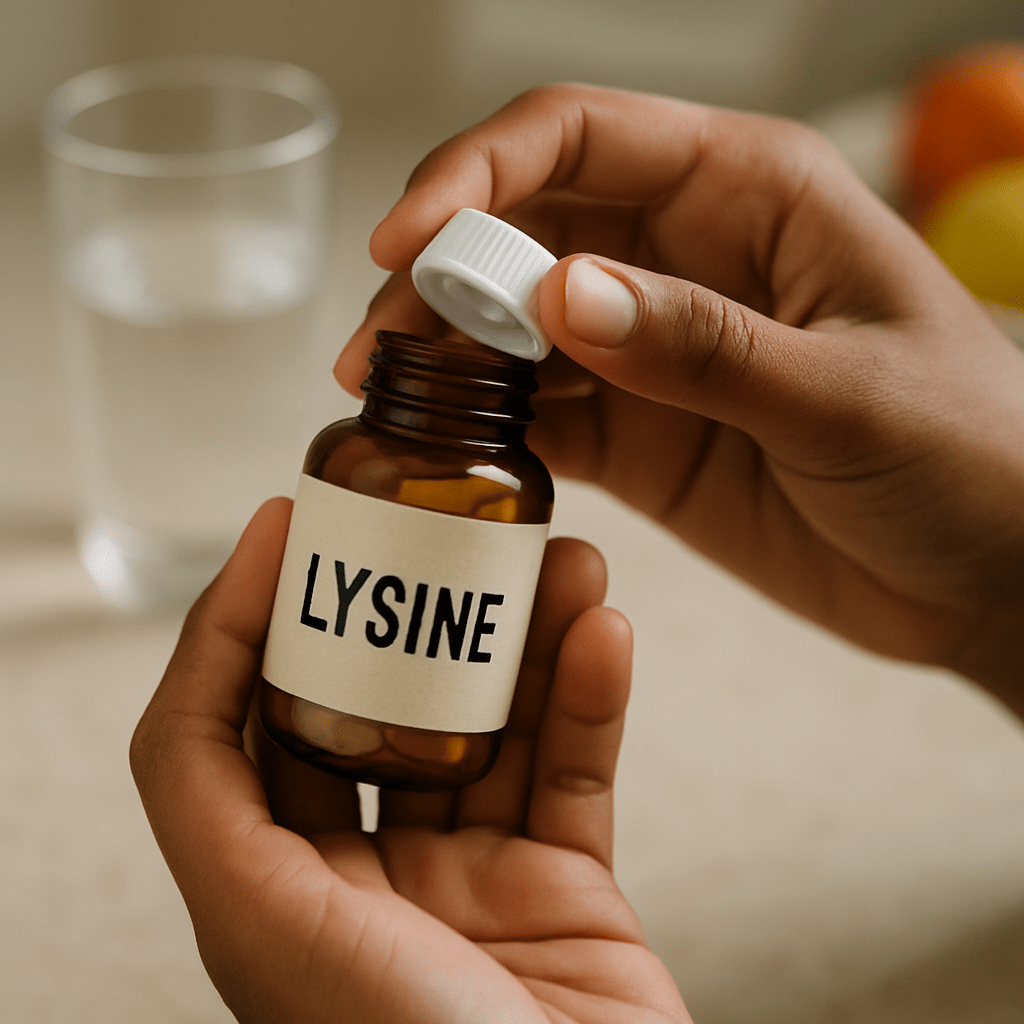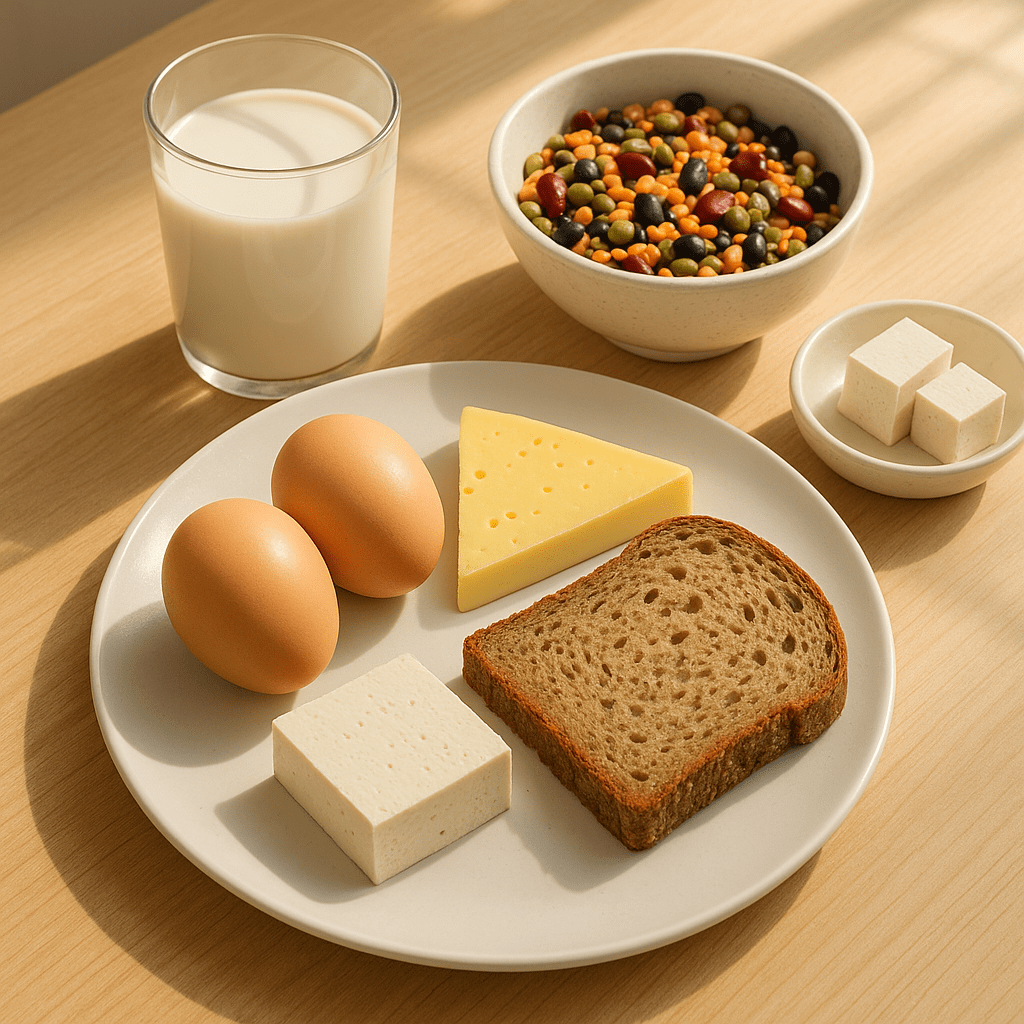Lysine is one of the eight essential amino acids that our body cannot produce on its own, so it must be obtained from food. This amino acid plays an important role in protein synthesis, tissue repair, and many other vital processes. Lysine helps maintain normal growth, is involved in collagen production, boosts immunity, and promotes calcium absorption. Without the right amount of lysine, our muscles, tissues, and immune system would not be able to function properly. Immune vitamins are natural or organic supplements, such as vitamin C, D, zinc, probiotics, chlorella, or chaga, which, along with lysine, can complement a health-supporting strategy.
In this article, you will learn about the main functions of lysine in the body, its sources in food, and its potential health benefits—from healing cold sores to improving muscle recovery. You will understand why this amino acid is becoming an increasingly important component in both everyday nutrition and the diets of people who exercise and care about their health.
Functions of lysine in the human body
- Lysine contributes to:
- the production of collagen, which is essential for the structure of skin, cartilage and connective tissue,
- normal immune system function,
normal calcium absorption, which helps maintain healthy bones.
Lysine is also involved in the production of carnitine – a substance that helps the body use fat for energy more efficiently.
In case of increased physical or emotional stress, it is worth taking lysine additionally – this way it supports the normal recovery of the body and general well-being.
Sources of lysine in food
To ensure a sufficient amount of lysine, it is important to know which foods are rich in it.
Animal proteins usually have the highest concentration of lysine. Red meat, chicken and turkey breast, pork loin and fish (especially tuna and salmon) are rich in this amino acid. For example, 100 g of chicken breast provides about 1.8 g of lysine, while the same amount of beef provides about 2.2 g.

Dairy products are also an excellent source of lysine. Cheese, yogurt, and milk provide not only lysine but also calcium, which this amino acid helps to absorb. 100 g of Parmesan cheese contains about 3.3 g of lysine, while the same amount of Greek yogurt contains about 0.7 g.
Eggs are one of the most versatile sources of lysine. One large egg contains about 0.5 g of lysine, mostly in the egg white.
Plant foods tend to be lower in lysine, but some of them can still be good sources of this amino acid. Legumes, such as lentils, beans, and chickpeas, are among the richest sources of lysine among plant foods. For example, 100 g of cooked lentils provide about 0.6 g of lysine. Soy products, including tempeh and tofu, are also good sources of this amino acid.
It should be noted that different people have different lysine needs. The average adult should consume about 12 mg of lysine per kilogram of body weight per day. This means that a 70 kg person should get about 840 mg of lysine daily. Athletes, people doing heavy physical work, and those recovering from injuries may have higher needs.
Lysine intake for vegetarians and vegans
Vegetarians and vegans need to be especially careful to ensure adequate lysine in their diet, as plant products generally contain less of this essential amino acid than animal products.

Excellent sources of lysine for vegetarians and vegans include legumes such as lentils, chickpeas, beans and peas. Soy products such as tofu, tempeh and soy milk are also good sources of this amino acid. In addition, quinoa, amaranth and chia seeds contain more lysine than other grains and seeds.
Vegetarians and vegans benefit from combining different protein products to ensure that they get all the essential amino acids. For example, rice is low in lysine but high in methionine (another amino acid), while beans are high in lysine but low in methionine. Therefore, combining these products creates a complete protein source. Supplements for Muscle · Energy · Weight Management · Beauty can also help supplement your diet with essential nutrients.
Effective absorption of lysine also depends on the way food is prepared. Soaking legumes before cooking can increase the bioavailability of their protein and amino acids. Fermented soy products, such as tempeh, are also easier to digest and their amino acids are better absorbed.
Lysine Supplements: When and How to Take Them?
While it is ideal to get lysine from natural food sources, supplements may be beneficial in some cases. Lysine supplements may be recommended for people with recurring cold sores, vegetarians and vegans who are unable to get enough from food, athletes looking to improve muscle recovery, and people who have problems absorbing lysine.

Typical doses of lysine supplements range from 500 mg to 3,000 mg per day, depending on your specific needs. It is best to take the supplement with food to avoid potential stomach upset. It is important to start with a low dose and gradually increase your dosage, observing your body’s response.
Lysine supplements are generally safe, but as with any supplement, it is recommended to consult a healthcare professional before taking them. This is especially important for people with kidney or liver disease, as high doses of lysine can put a strain on these organs. Fortified with vitamin B6, maca root, and the prebiotic fiber inulin, this product can be a great choice if you are looking for a protein supplement that is loaded with additional nutrients.
While lysine supplements may interact with some medications, including calcium supplements and some antibiotics, these interactions are usually not dangerous. However, it is important to inform your doctor about all supplements you are taking.
Summary
Lysine is a vital amino acid that performs many important functions in our bodies, from protein synthesis to boosting immunity. Since the body cannot produce lysine on its own, it is essential to get enough of it through diet or supplements.

Animal products, such as meat, fish, eggs, and dairy products, are the richest sources of lysine. Vegetarians and vegans can get this amino acid from legumes, soy products, and some grains. It is important to ensure a balanced diet, especially if you are following a specific diet.
The health benefits of lysine are wide-ranging, from preventing and treating cold sores to improving muscle recovery, strengthening bones, and supporting the immune system. While it is generally recommended to obtain lysine from natural sources, supplements may also be beneficial in certain cases.
It is always recommended to consult a healthcare professional before taking any dietary supplement, including lysine, especially if you have a medical condition or are taking medication. A well-balanced diet, along with other healthy lifestyle practices, is the best way to ensure optimal lysine levels and overall health.
Frequently Asked Questions (FAQs)
What is lysine and why does the body need it?
Lysine is an essential amino acid that the body cannot make on its own. It is necessary for protein production, immune system support, and tissue repair.
Which foods are highest in lysine?
Red meat, poultry, fish, dairy products, eggs, soy products, and some legumes, such as lentils, are high in lysine.
Can lysine help prevent cold sores?
Yes, research shows that lysine supplements can reduce the frequency and severity of cold sores caused by the herpes simplex virus.
Is it possible to get enough lysine from a vegetarian or vegan diet?
Although plant sources are lower in lysine, a well-planned vegetarian or vegan diet that includes legumes, beans, and soy can provide adequate amounts.
Are there any risks or side effects of taking lysine supplements?
Lysine supplements are generally safe for most people, but excessive consumption may cause stomach discomfort. It is always recommended to consult a healthcare professional before taking supplements.

